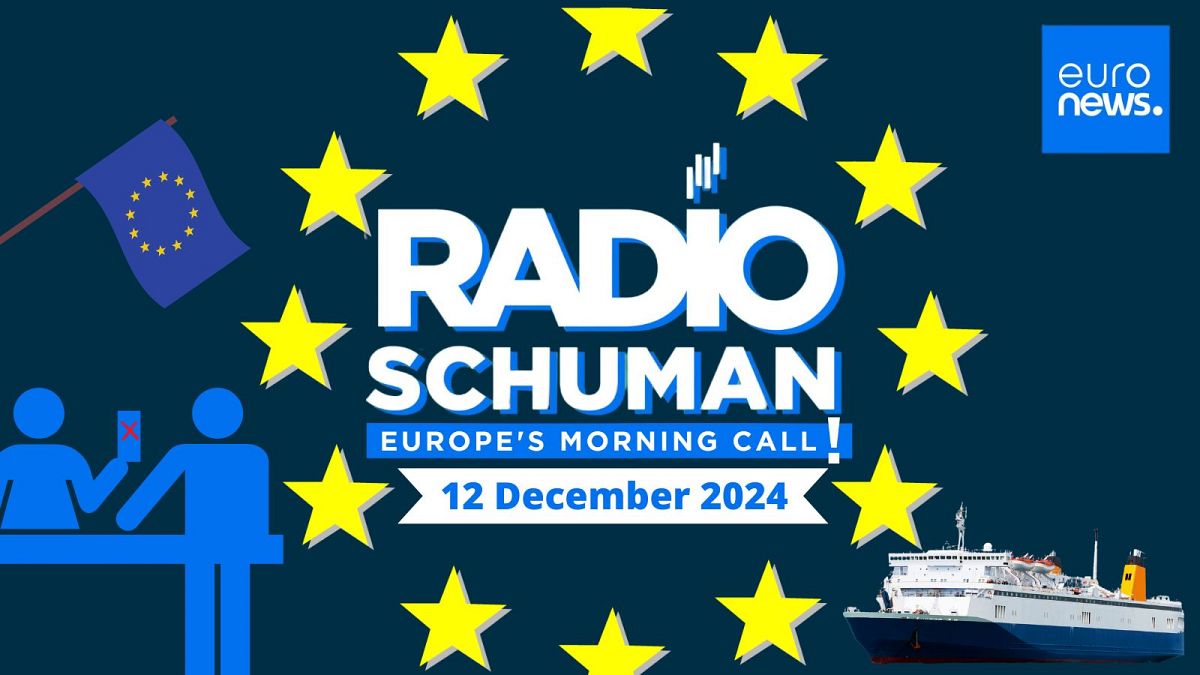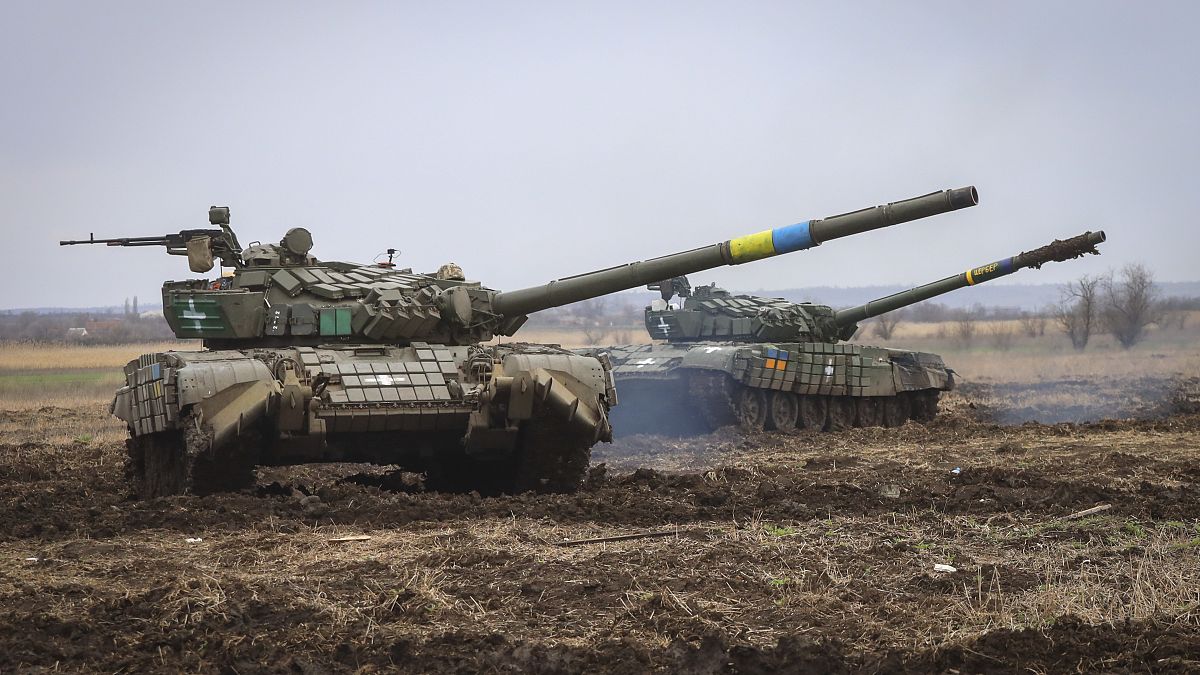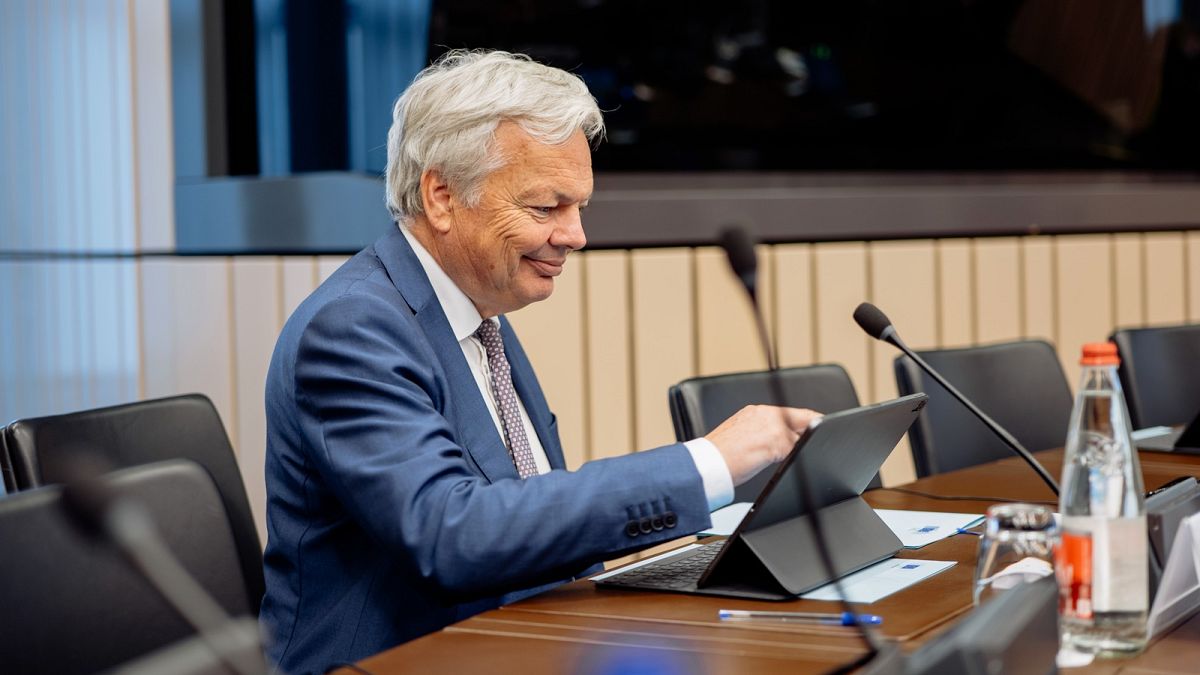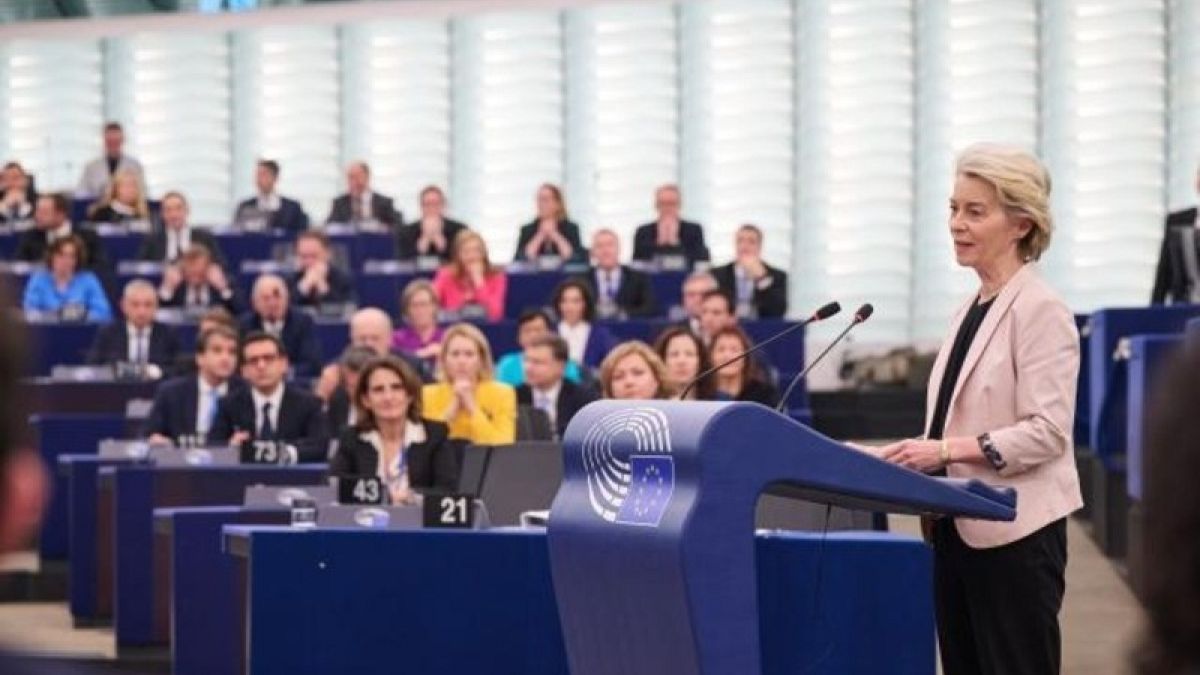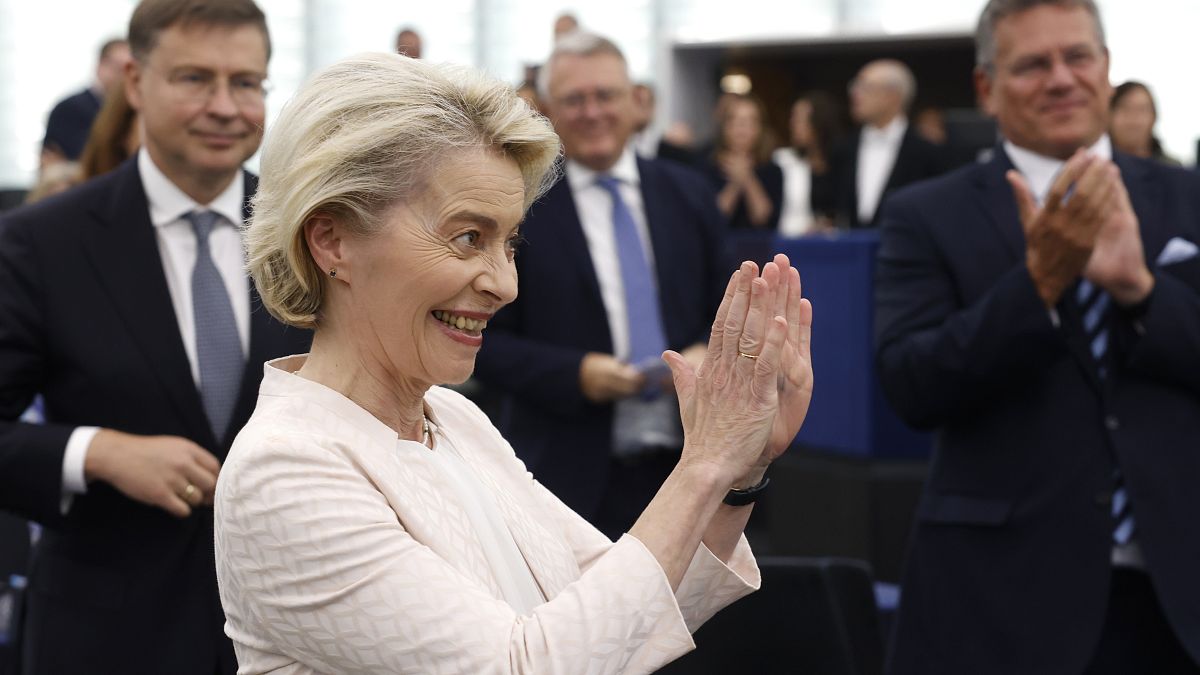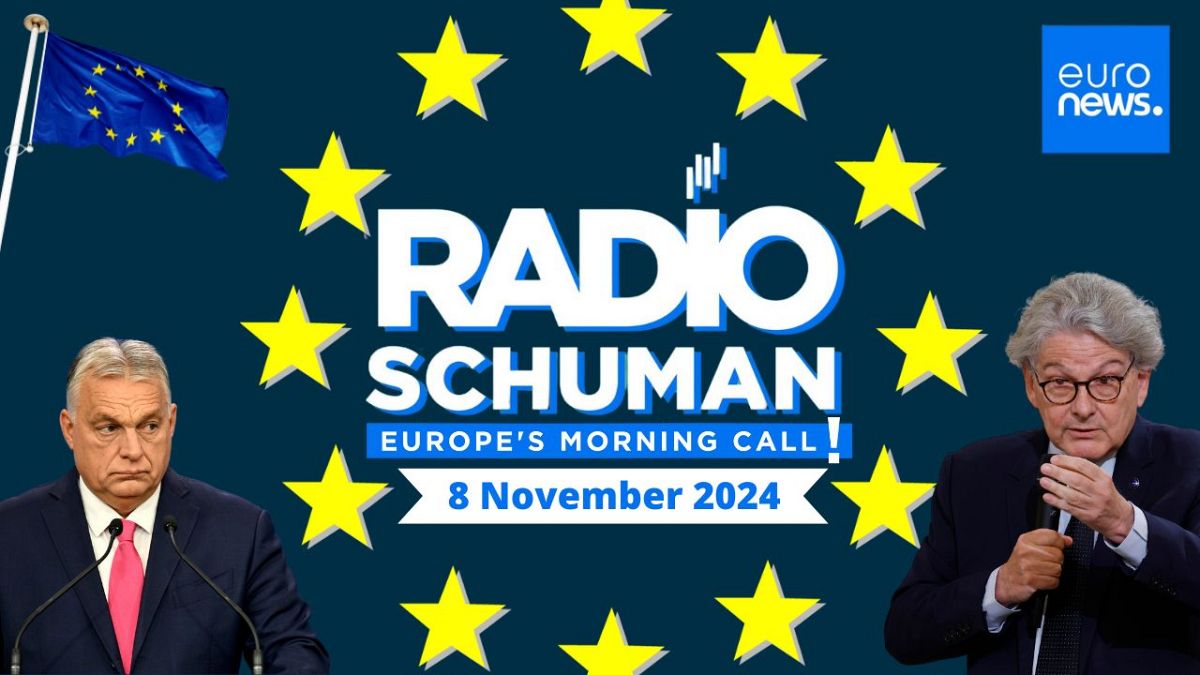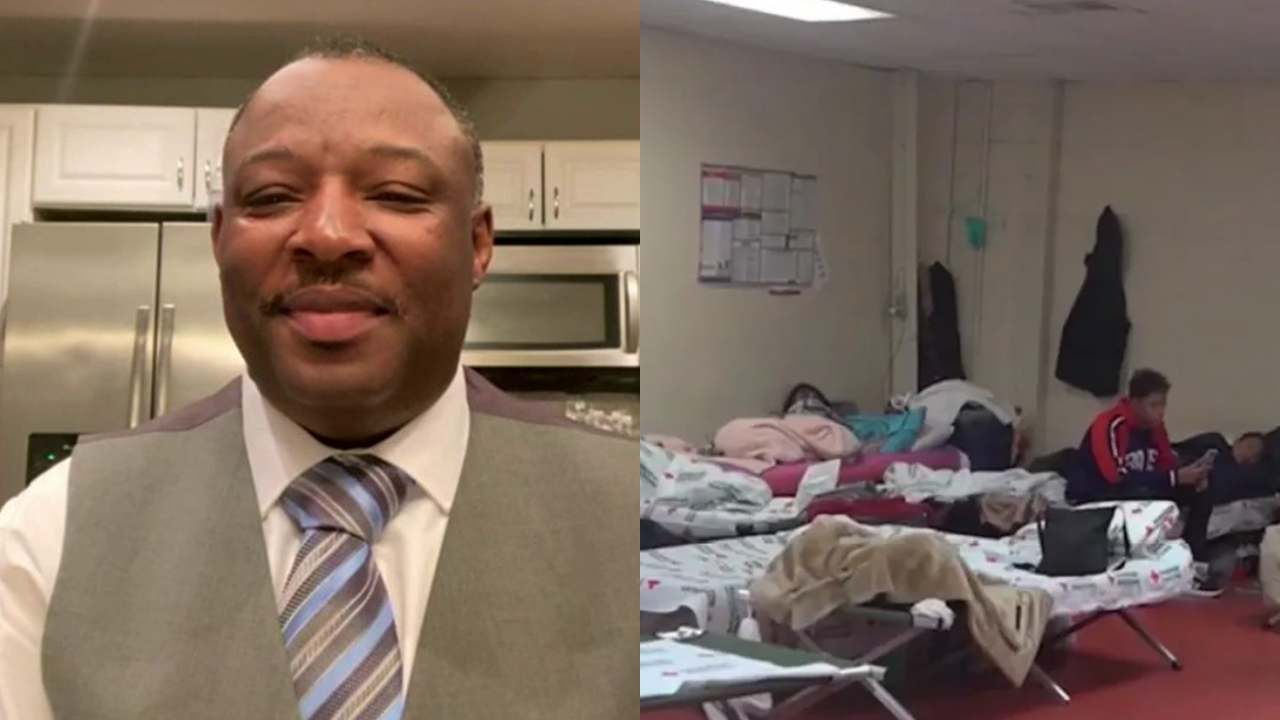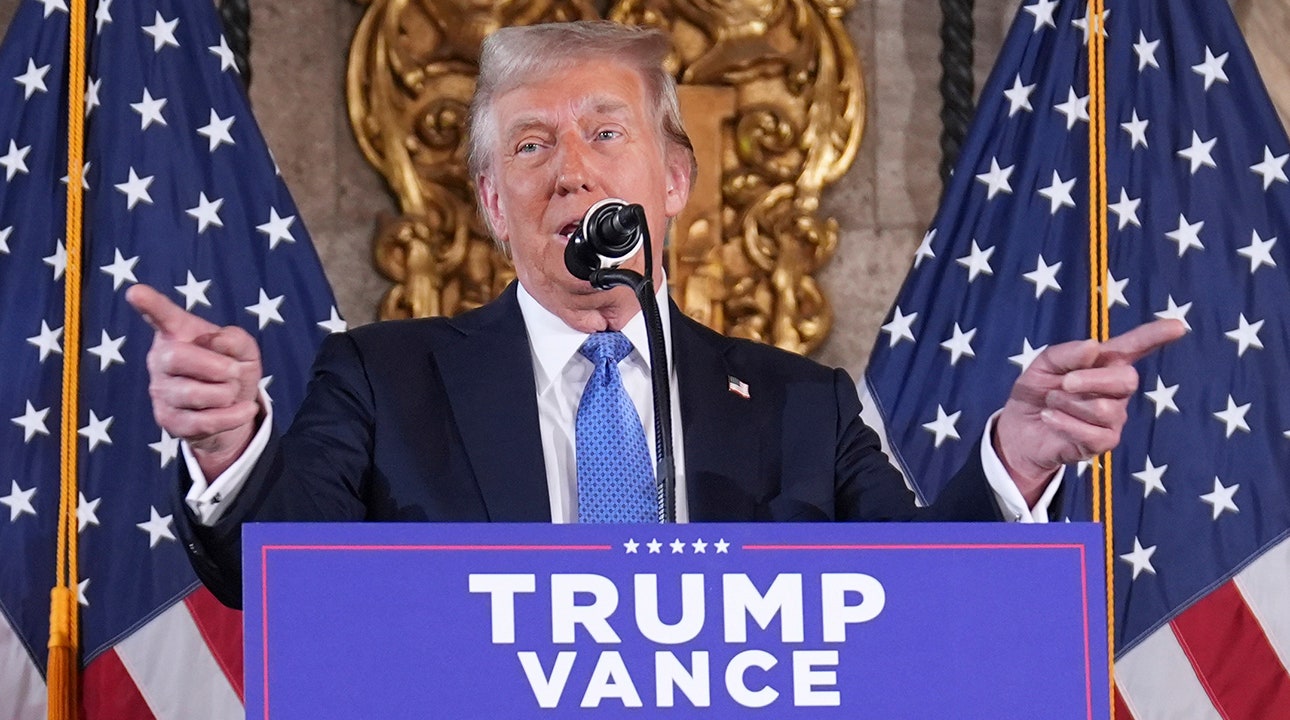World
Moldova to stamp out oligarchs in EU membership push: foreign minister
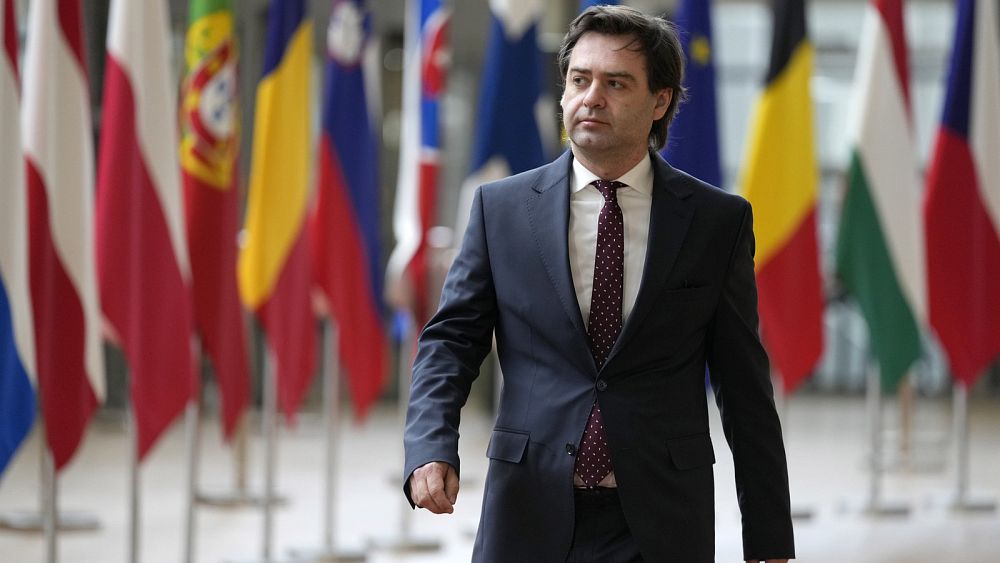
Moldova will limit the “toxic influence” of Russia-backed oligarchs who use hybrid warfare to undermine the country’s democracy in its push for EU membership, foreign minister Nicu Popescu has told Euronews.
Speaking in an interview hours after the EU executive endorsed formal accession talks for Moldova, Popescu recognised the challenge of stamping out Russian influence.
“We do have a complicated situation with criminal oligarchs trying to destabilize Moldova, working together with Russia, injecting dozens of millions of euros into the Moldovan political system in an attempt to buy elections,” he explained.
His comments came days after local elections were marred by reports of Russian interference, with President Maia Sandu warning parties “paid by the Kremlin” were trying to subjugate Moldova to foreign interests.
“We will continue working in Moldova, but also in cooperation with the European Union and our partners, to limit the toxic influence of oligarchs on the Moldovan political system and their attempts to derail Moldova through hybrid attacks,” Popescu added.
Following the European Commission’s recommendation on Wednesday, EU leaders could approve the opening of formal accession talks for both Moldova and Ukraine as early as mid-December.
It is the first time the EU executive has given the green light to accession negotiations before candidate countries have fully met the necessary criteria set by Brussels, such as judicial reforms and anti-corruption measures.
A senior EU official told reporters on Wednesday that Moldova has completed “more than 90% of its reforms”, suggesting the country was ahead of Ukraine in its preparation for negotiations.
But pending reforms include crucial judicial reforms, anti-corruption crackdown, and more measures to stifle the influence of oligarchs.
A ‘merit-based’ process
Asked whether he foresees his country will remain in lockstep with Ukraine on the path to EU accession, Popescu underlined that progress towards EU accession should be based on merit.
“We believe in a merit-based process and we have our eyes firmly on the necessary technical steps that will bring Moldova into the European Union,” he said.
“One should not forget that European integration was created as a mechanism in the 1950s to pacify Europe, to democratise Europe, to consolidate peace and democracy in Europe,” he added. “This EU enlargement process has exactly the same objective today.”
“We should acknowledge that Moldova is at peace today thanks to Ukraine, thanks to the capacity of Ukrainian society, the Ukrainian army, Ukrainian political leadership to resist Russia’s brutal aggression,” Popescu explained.
Ukraine’s self-defence is allowing Moldova to live in peace and to implement the right reforms to edge closer to EU membership, he said.
Many EU candidate countries have lobbied for staggered entry into the bloc to replace the traditional all-or-nothing model of EU membership.
Brussels is trialling means of slowly integrating its candidate countries, including Moldova, into the bloc by offering limited access to its free trade area, visa-free travel and free roaming.
Moldova also participates in the bloc’s common platform for purchasing gas, which has allowed the country to rid itself of its heavy reliance on Russia-imported gas.
But Popescu said that while phased integration brings benefits to Moldovan citizens, his country is eyeing full-fledged membership.
Moldova is also interacting with other countries in the EU’s waiting room to share experiences, according to Popescu.
“We have a constant exchange of experience with Ukraine, with North Macedonia, with Serbia, with Albania. We are learning from each other,” he explained.
“We have borrowed some of the methodology that other candidate countries have used in their process of joining the European Union. We are learning from some of their mistakes. So we really have excellent cooperation and coordination on this with Ukraine, but with the countries of the Western Balkans as well.”

World
Map: 7.3-Magnitude Earthquake Strikes Near Vanuatu
Note: Map shows the area with a shake intensity of 4 or greater, which U.S.G.S. defines as “light,” though the earthquake may be felt outside the areas shown. The New York Times
A major, 7.3-magnitude earthquake struck in the Coral Sea on Tuesday, according to the United States Geological Survey.
The quake briefly prompted a tsunami alert for parts of Vanuatu, according to the U.S. Tsunami Warning System, which is part of the National Weather Service. As of 2:14 p.m. local time, U.S. officials said the threat had passed.
The temblor happened at 12:47 p.m. Vanuatu time about 19 miles west of Port-Vila, Vanuatu, data from the agency shows.
U.S.G.S. data earlier reported that the magnitude was 7.4.
As seismologists review available data, they may revise the earthquake’s reported magnitude. Additional information collected about the earthquake may also prompt U.S.G.S. scientists to update the shake-severity map.
Aftershocks in the region
An aftershock is usually a smaller earthquake that follows a larger one in the same general area. Aftershocks are typically minor adjustments along the portion of a fault that slipped at the time of the initial earthquake.
Quakes and aftershocks within 100 miles
Aftershocks can occur days, weeks or even years after the first earthquake. These events can be of equal or larger magnitude to the initial earthquake, and they can continue to affect already damaged locations.
Source: United States Geological Survey | Notes: Shaking categories are based on the Modified Mercalli Intensity scale. When aftershock data is available, the corresponding maps and charts include earthquakes within 100 miles and seven days of the initial quake. All times above are Vanuatu time. Shake data is as of Monday, Dec. 16 at 9:01 p.m. Eastern. Aftershocks data is as of Tuesday, Dec. 17 at 9:02 a.m. Eastern.
World
Report exposes Hamas terrorist crimes against families during Oct 7 massacre: 'kinocide'
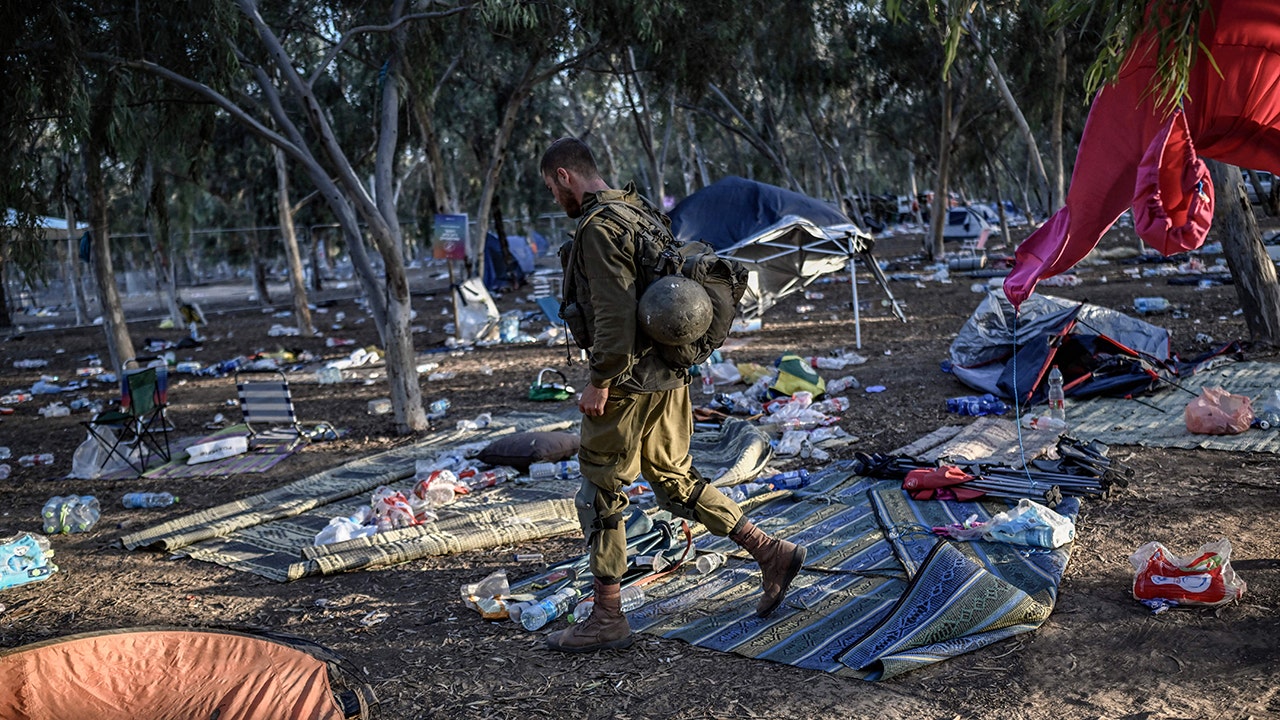
In the early hours of October 7, 2023, the Idan family of Kibbutz Nahal Oz was shattered when Hamas terrorists infiltrated their home. As the family tried to take refuge in their safe room, the terrorists murdered their eldest daughter, Maayan, in front of her parents and siblings, and then abducted the father, Tzachi. The scene was broadcast live on social media, forcing the nation to witness their agonizing last moments.
At the same time, in Kibbutz Holit, 16-year-old Rotem Matias lay hiding under his mother’s lifeless body, texting his sisters the heartbreaking news: “Mom and Dad are dead. Sorry.”
In Kfar Aza, Roee Idan was killed while holding his 3-year-old daughter, Abigail, as his older children watched in horror. Their mother, Smadar, was also shot before their eyes. Afterward, the children hid in a closet, trapped with their mother’s body, unsure of their younger sister’s fate, who was later abducted into Gaza.
ISRAELI POLICE SAY EXTREME SEXUAL VIOLENCE, RAPE BY HAMAS TERRORISTS WAS SYSTEMATIC
A bloodied handprint stains a wall in a Nir Oz house after Hamas terrorists attacked this kibbutz days earlier near the border of Gaza. (Alexi J. Rosenfeld/Getty Images)
These are just a few of the countless stories documented in a new report released on Tuesday, co-authored by Dr. Cochav Elkayam-Levy, founder of the Civil Commission on October 7th Crimes Against Women and Children, and Dr. Michal Gilad and Dr. Ilya Rudyak. The report introduces the term “kinocide” to describe the systematic targeting and destruction of family units during the attack- an unprecedented atrocity that goes beyond typical warfare.
“A crime without a name for victims without a voice,” as Dr. Elkayam-Levy described it. “The perpetrators not only killed but deliberately sought to destroy the very foundation of human society: the family.”
“The hardest crimes to witness were those involving families,” Dr. Elkayam-Levy continued, “While the Hamas perpetrators celebrated their violence, chanting religious slogans and broadcasting their actions on social media, the terror was not confined to the immediate victims-it was amplified globally.”
“The use of social media was crucial in spreading the terror, inspiring similar acts of violence elsewhere,” Merav Israeli-Amarant, CEO of the Civil Commission, told Fox News Digital. She referred to this tactic as the “terror theater” a term coined by legal scholar Tehila Schwartz Altshuler, explaining how the broadcasts were designed to radicalize and incite other terrorists.
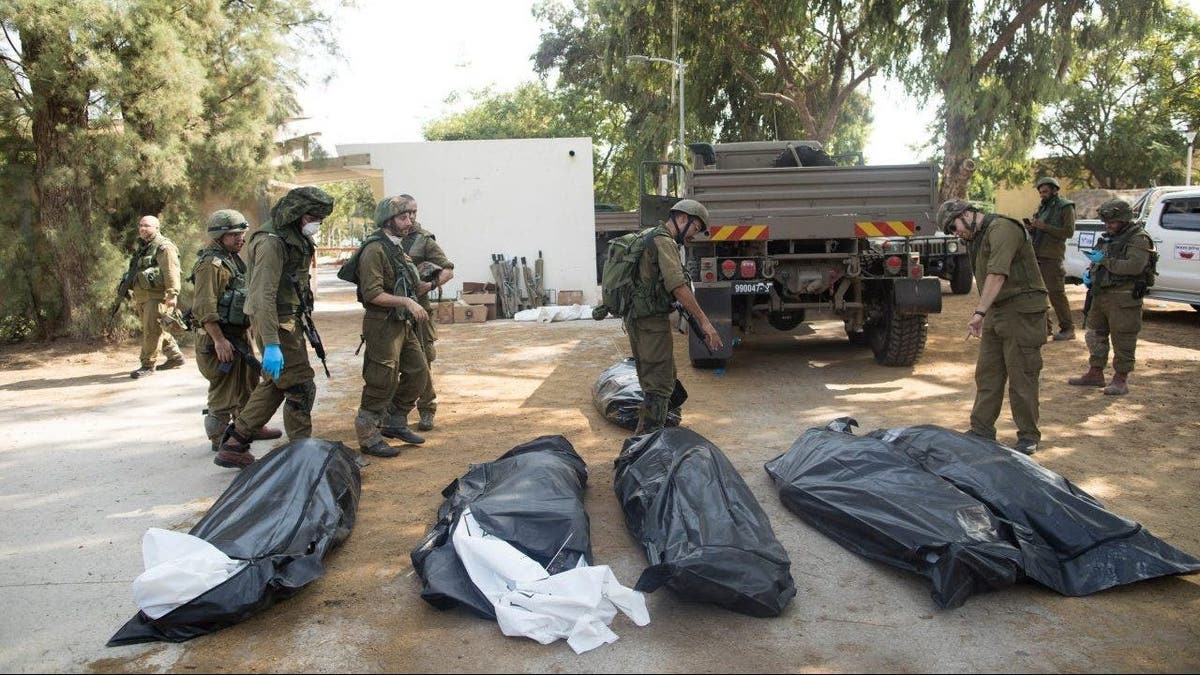
Israeli soldiers remove the bodies of civilians who were killed days earlier in an attack by Palestinian terrorists on this kibbutz near the border with Gaza, on Oct. 10, 2023 in Kfar Aza, Israel. (Photo by Amir Levy/Getty Images)
As Elkayam-Levy and her team dug deeper, they realized that similar tactics have been documented in conflicts across the globe, from Argentina and Iraq to Syria, Sierra Leone and Myanmar. “We’ve been in contact with survivors of kinocide, including Yazidis, who have shared their experiences. The pain is universal. This has happened before, but it never had a name,” Dr. Elkayam-Levy said.
In collaboration with the Raoul Wallenberg Center for Human Rights, the commission worked to identify these patterns of abuse and ensure that kinocide is recognized as a distinct crime. The new report, released after a year of research, includes interviews with survivors, visits to the sites where the atrocities took place, and an extensive review of evidence. The goal is to bring kinocide into international legal discourse, advocating for its urgent need to be recognized as a distinct crime.
‘I WILL BE HAUNTED FOREVER’: ISRAEL’S HORRIFIC VIDEO OF HAMAS ATROCITIES LEAVES VIEWERS SHOCKED AND SICKENED
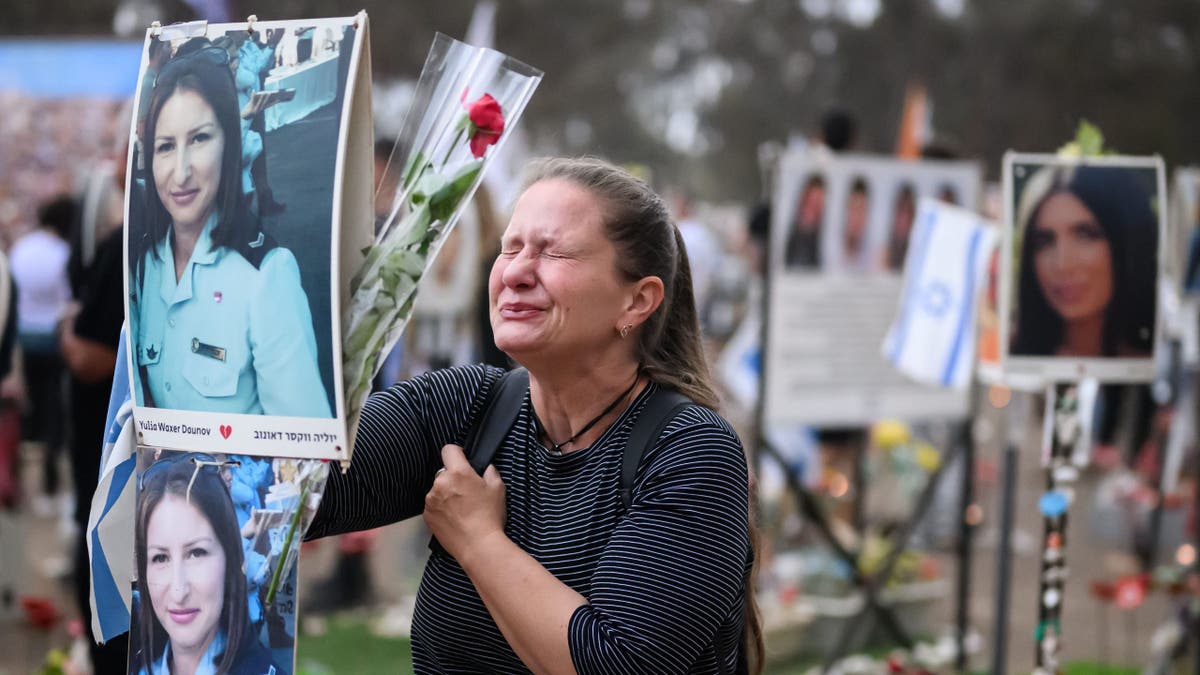
A woman breaks down at the memorial to Yulia Waxer Daunov as family members and friends of the lost and kidnapped gather at the site of the Nova Festival to mark the one-year anniversary of the attacks by Hamas terrorists on Oct. 7, 2024 in Re’im, Israel. (Leon Neal/Getty Images)
Professor Irwin Cotler, former Minister of Justice of Canada and International Chair of the Raoul Wallenberg Center for Human Rights, stated, “Silence in the face of such evil is not neutrality; it is complicity. Worse still, there has been denial, justification, and even the glorification of these heinous acts, underscoring the moral and legal imperative to act decisively against such crimes. The dangers of antisemitism are not just the oldest and most lethal of hatreds- they are also a presage of global evil, as evidenced by the events of October 7.”
“We need an international coalition to address this systematic targeting of families,” Elkayam-Levy said. “But international law has failed the survivors of October 7. The current legal frameworks do not adequately protect families in these kinds of attacks.”
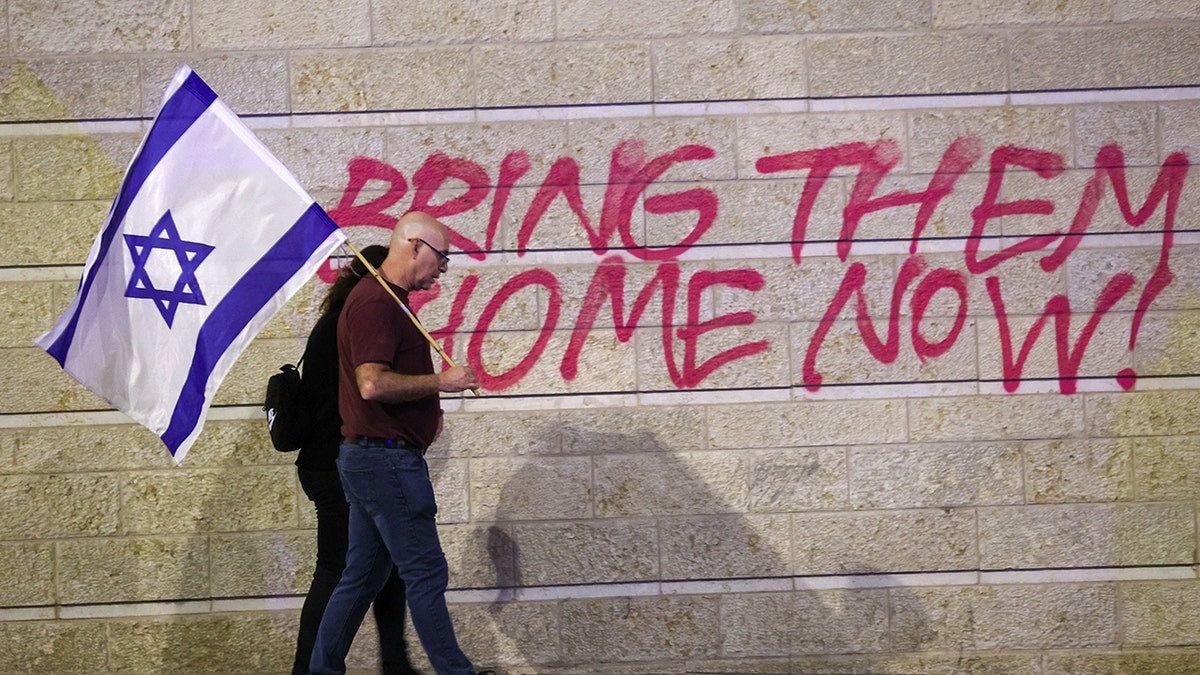
An Israeli couple holding their national flag walk in front of graffiti calling for the release of Israeli hostages held in the Gaza Strip since the Oct. 7 attack by Hamas terrorists in southern Israel, in Jerusalem on Nov. 18, 2023. (GIL COHEN-MAGEN/AFP via Getty Images)
The report, which has been endorsed by international law experts and human rights activists worldwide, highlights the urgent need for legal and social recognition of kinocide. However, despite the report’s widespread endorsement, Elkayam-Levy expressed her concern over the international community’s response.
As someone who faced the denial of prominent figures in the international human rights community in response to her last report on sexual violence on Oct. 7, she said, “We live in dark times when international law is weaponized against us (Israelis) in terrifying ways. As an international human rights scholar, I never imagined that we would live in a time when such abuse is directed at us. It really scares me.”
World
Meloni says EU must be pragmatic with Trump to avoid US trade tensions

As fears of a trade war rise, the Italian premier is seen as one of US president-elect Donald Trump’s closest EU allies.
Italian Prime Minister Giorgia Meloni said on Tuesday that the EU must take a pragmatic approach with the incoming Trump administration in order to head off a trade war between Europe and the US.
The EU has been bracing for trade problems ever since the recently re-elected Trump vowed to impose tariffs of 10% to 20% on imports from all foreign countries — apart from China, which will face a 60% tariff if his proposals become reality.
Italy’s right-wing leader Meloni appears to have forged a friendship with Trump in recent months, with the pair posing for photos and praising each other, which could make her one of his closest EU allies, especially given the political crises in Germany and France.
“It is essential to maintain a pragmatic, constructive and open approach towards the new Trump administration, using areas of potential and fruitful EU-US cooperation and trying to prevent commercial disputes that wouldn’t benefit anyone,” Meloni told Italy’s parliament in a speech ahead of the European Council summit in Brussels on Thursday.
Trump warned during his election campaign that the EU would “pay a big price” for supposedly not buying enough US exports, including American cars, considering that the 27-country bloc “sells millions and millions of cars in the United States”.
During his previous term as president, Trump described Europe as a “foe” of the US.
Data from the US Census Bureau shows that the EU exported $576.3 billion (€549.2 billion) worth of goods to the US in 2023 — representing about 20% of the bloc’s total exports — for a goods trade surplus of $208.6 billion (€198.8 billion).
Last month, the EU’s ambassador to the US, Jovita Neliupšienė, said that the bloc was ready to respond to any renewed trade disputes with the US that could arise under Trump’s incoming administration. However, she did not specify any possible measures.
Regarding Trump’s tariff threats, Meloni has previously said that the EU should focus on setting its own affairs in order rather than worrying about the US.
“Don’t ask what the US can do for you, ask what Europe should do for itself,” Meloni said ahead of a EU leaders’ meeting in Budapest last month, paraphrasing Trump’s presidential predecessor John F. Kennedy.
“Europe must find a balance,” she added. “I’m thinking of the issues of competitiveness, tariffs.”
Meloni and Trump dined together earlier this month at an event organised by French President Emmanuel Macron to mark the reopening of the Notre Dame Cathedral in Paris.
Trump reportedly described Meloni as a “real live wire” and later said he was ready to work with her, calling her “a fantastic leader and person”. In a post on X last week, Meloni shared a video of Trump’s comments and wrote, “Thanks (to Trump) for the kind words”.
-

 Technology1 week ago
Technology1 week agoStruggling to hear TV dialogue? Try these simple fixes
-

 Business1 week ago
Business1 week agoOpenAI's controversial Sora is finally launching today. Will it truly disrupt Hollywood?
-

 Politics4 days ago
Politics4 days agoCanadian premier threatens to cut off energy imports to US if Trump imposes tariff on country
-
/cdn.vox-cdn.com/uploads/chorus_asset/file/25782636/247422_ChatGPT_anniversary_CVirginia.jpg)
/cdn.vox-cdn.com/uploads/chorus_asset/file/25782636/247422_ChatGPT_anniversary_CVirginia.jpg) Technology5 days ago
Technology5 days agoInside the launch — and future — of ChatGPT
-
/cdn.vox-cdn.com/uploads/chorus_asset/file/25789444/1258459915.jpg)
/cdn.vox-cdn.com/uploads/chorus_asset/file/25789444/1258459915.jpg) Technology3 days ago
Technology3 days agoOpenAI cofounder Ilya Sutskever says the way AI is built is about to change
-

 Politics3 days ago
Politics3 days agoU.S. Supreme Court will decide if oil industry may sue to block California's zero-emissions goal
-

 Politics5 days ago
Politics5 days agoConservative group debuts major ad buy in key senators' states as 'soft appeal' for Hegseth, Gabbard, Patel
-
/cdn.vox-cdn.com/uploads/chorus_asset/file/25546252/STK169_Mark_Zuckerburg_CVIRGINIA_D.jpg)
/cdn.vox-cdn.com/uploads/chorus_asset/file/25546252/STK169_Mark_Zuckerburg_CVIRGINIA_D.jpg) Technology4 days ago
Technology4 days agoMeta asks the US government to block OpenAI’s switch to a for-profit
